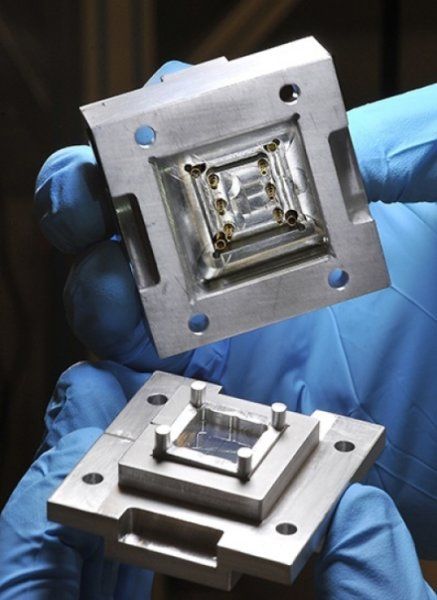Great advancement around how to make QC available on small scale devices.
Researchers from the Institute for Quantum Computing (IQC) at the University of Waterloo led the development of a new extensible wiring technique capable of controlling superconducting quantum bits, representing a significant step towards to the realization of a scalable quantum computer.
“The quantum socket is a wiring method that uses three-dimensional wires based on spring-loaded pins to address individual qubits,” said Jeremy Béjanin, a PhD candidate with IQC and the Department of Physics and Astronomy at Waterloo. He and Thomas McConkey, PhD candidate from IQC and the Department of Electrical and Computer Engineering at Waterloo, are lead authors on the study that appears in the journal Physical Review Applied as an Editors’ Suggestion and is featured in Physics. “The technique connects classical electronics with quantum circuits, and is extendable far beyond current limits, from one to possibly a few thousand qubits.”
One promising implementation of a scalable quantum computing architecture uses a superconducting qubit, which is similar to the electronic circuits currently found in a classical computer, and is characterized by two states, 0 and 1. Quantum mechanics makes it possible to prepare the qubit in superposition states, meaning that the qubit can be in states 0 and 1 at the same time. To initialize the qubit in the 0 state, superconducting qubits are brought down to temperatures close to −273 degrees Celsius inside a cryostat, or dilution refrigerator.
